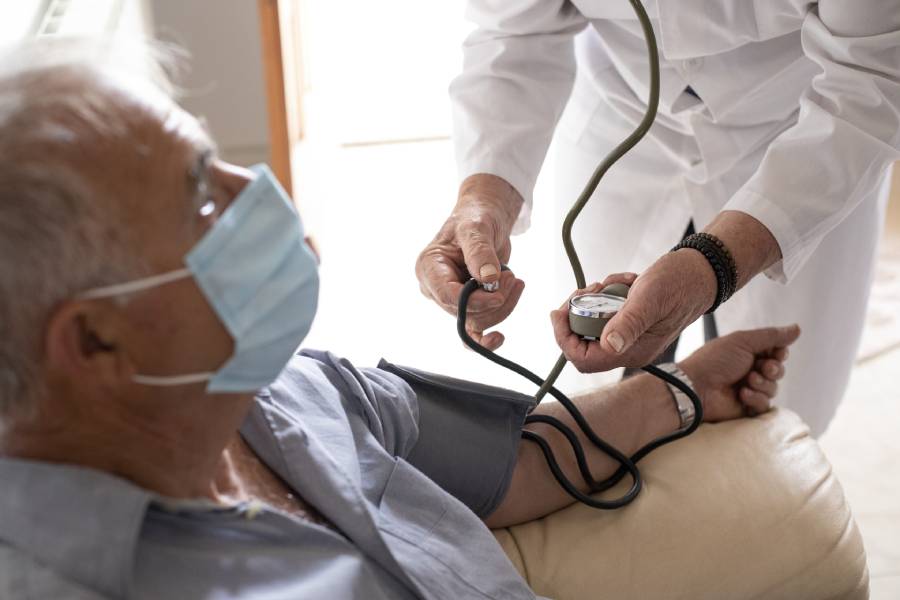
Heart problems are usually not sudden, out-of-nowhere events. Sometimes, an issue with heart disease goes undiagnosed or ignored until it gets bad enough to cause heart failure or a heart attack. It’s important to know what your heart is telling you if you experience a change in your normal condition, including breathing changes, pain and fatigue.
Among those who have recovered from COVID-19, however, physicians are seeing some patients develop new and sudden heart conditions. Because COVID-19 is considered a respiratory infection, one of the more serious and telltale COVID-19 symptoms is a shortness of breath, which can leave the heart with an inadequate level of oxygen. A low level of oxygen can cause blood cells to inflame, possibly creating blood clots and potentially leading to a heart attack and strain on the heart.
Myocarditis, the heart condition often associated with COVID-19 in recovery, is an inflammation of the heart muscles, with viral infections of any type being a main cause. Symptoms most associated to myocarditis are:
- Chest pain
- Dizziness
- Fatigue
- Heart palpitations
- Arrhythmia
- Shortness of breath
- Swelling in extremities
Another serious condition that can develop after people have recovered from COVID-19 is a pulmonary embolism, which is a clot that travels to the lungs. A clot is formed when blood thickens and coagulates into a clump-like, semi-solid state. If they don’t naturally dissolve, clots can travel through the body’s blood vessels, increasing the likelihood of that clot obstructing blood flow.
Many conditions, including myocarditis and pulmonary embolisms, don’t display signs that are immediately identifiable. It may take time for symptoms to surface, but be on the lookout for:
- Shortness of breath and/or difficulty catching your breath. This may be most apparent when you are active or when you lie down in bed.
- Weakness or lightheadedness, especially if you are too weak to do your normal activities, feel dizzy or even pass out.
- Chest discomfort. You might feel pressure on your chest when you attempt activity or are exposed to cold air.
- Palpitations including rapid heart rhythm, irregular heartbeat, skipped beats or a flip-flop feeling in your chest.
In the limited studies of recovered COVID-19 patients, about 25 percent of hospitalized patients have been shown to develop a heart condition. While heart disease is a major risk factor for developing this lasting effect, it’s also been found in many patients who have no history of heart disease.
Sometimes, a healthy heart can spell the difference between life and death. Know your risks and turn to your physician and McLaren St. Luke’s to help you keep your heart healthy.
McLaren St. Luke’s Heart and Vascular Center offers comprehensive tests and procedures to help your physician determine if you have a heart condition and the most effective treatments if you do. The center is accredited as a Chest Pain Center by the American College of Cardiology. To find a cardiologist or cardiothoracic surgeon at McLaren St. Luke’s, visit www.mclaren.org/stlukesheart.